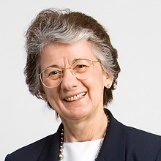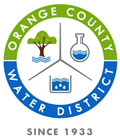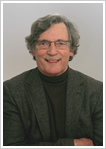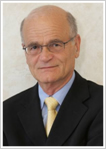Laureates
2018

Professor Rita Colwell is awarded the Lee Kuan Yew Water Prize 2018 for her pioneering insights into microbial water quality surveillance, and her pivotal contributions in translating these insights into concrete practices and policies to better manage waterborne diseases and protect public health. Her breakthrough discovery of the “viable but non-culturable” (VBNC) phenomenon showed that bacteria can exist in a state in which they are alive and can cause harm even though they cannot be cultured. While met with scepticism from many prominent scientists at that time, the VBNC phenomenon has now been shown to exist in more than 50 species of bacteria, including many pathogens. Building upon this discovery, Professor Colwell was an early and active proponent of the use of novel molecular methods for more accurate and comprehensive diagnostics of water pathogens.
Professor Rita Colwell
2016

Professor John Anthony Cherry
2016
Professor John Anthony Cherry was awarded the 2016 Lee Kuan Yew Water Prize for his contributions to the advancement of groundwater science, policies, and technologies. A world renowned hydrogeologist, his revolutionary research in collaboration with international partners has provided the global groundwater community with a better scientific framework to formulate policies and best practices. He has been a major influence in advancing global recognition of groundwater processes and the development of better field methods for monitoring groundwater contamination.
2014

The Orange County Water District
2014
The Orange County Water District (OCWD) was awarded the 2014 Lee Kuan Yew Water Prize for innovative work in the management of groundwater, as well as for charting new heights in water reclamation, advanced water reuse technologies, and for solid achievements in public policy and community outreach. Every stage of the OCWD project has potentially vast benefits to its immediate community, and to its surrounding districts and the public at large. The effect of all this has also served to advance public acceptance and correct the public’s often faulty notions with regard to the reuse of water
2012

Professor Mark Van Loosdrecht
2012
Professor Mark van Loosdrecht was awarded the 2012 Lee Kuan Yew Water Prize for his breakthrough contributions in used water treatment and for his development of the completely autotrophic nitrogen removal process, Anammox. The Anammox process greatly reduces the overall energy consumption, chemical usage and carbon emissions of a conventional used water treatment plant. With this innovative sustainable way of removing pollutants in used water, Professor Mark van Loosdrecht has ushered in a paradigm shift in the understanding of the used water treatment process.
2011

Dr James Barnard
2011
Dr James Barnard was awarded the 2011 Lee Kuan Yew Water Prize for the invention of a biological method to treat used water, rendering it fit to be returned to lakes and rivers. His Biological Nutrient Removal (BNR) technology uses naturally occurring microorganisms to remove harmful nitrogen and phosphorus from used water to avoid hampering water quality. Less expensive and more environmentally-friendly than traditional chemical treatments, BNR protects and maintains the water quality of lakes and rivers and promotes water recycling. All BNR systems used worldwide today were developed from Dr Barnard’s technology
2010

Yellow River Conservancy Commission
2010
The Yellow River Conservancy Commission (YRCC) was awarded the 2010 Lee Kuan Yew Water Prize for outstanding accomplishments in integrated river basin management that are unrivalled in scale. YRCC’s innovative policies and solutions have brought about the widespread, sustainable social, economic and environmental benefits. The YRCC transformed China’s second longest river in just 10 years, securing the water supply for over one hundred million people, restoring extensive wetlands for increased biodiversity and protecting approximately 90 million people who live in flood-prone areas of the river.
2009

Professor Gatze Lettinga
2009
Professor Gatze Lettinga was awarded the 2009 Lee Kuan Yew Water Prize for his environmentally sustainable breakthrough solution to water treatment using anaerobic technology. His revolutionary concept enables used industrial water to be purified in a cost-effective manner while producing renewable energy, fertilisers and soil conditioners. By choosing not to patent his invention, Professor Gatze Lettinga made his technology universally available. As a result, his technology has been adopted widely, and is used both at the industrial and municipal levels, as more sectors have increased concerns about energy efficiency.
2008

Dr Andrew Benedek
2008
Dr Andrew Benedek was awarded the 2008 Lee Kuan Yew Water Prize for his pioneering achievement: the development and use of low-pressure membranes in water treatment. Through dedicated research, Dr Benedek has redefined the way water can be treated, and his findings have demonstrated how drinking water can be produced from different water sources. More importantly, his work shows that even water from highly polluted sources can be treated in such a way as to yield potable water. The implications of Dr Benedek’s work are highly relevant, representing a huge benefit for mankind, both in developed and developing countries.
